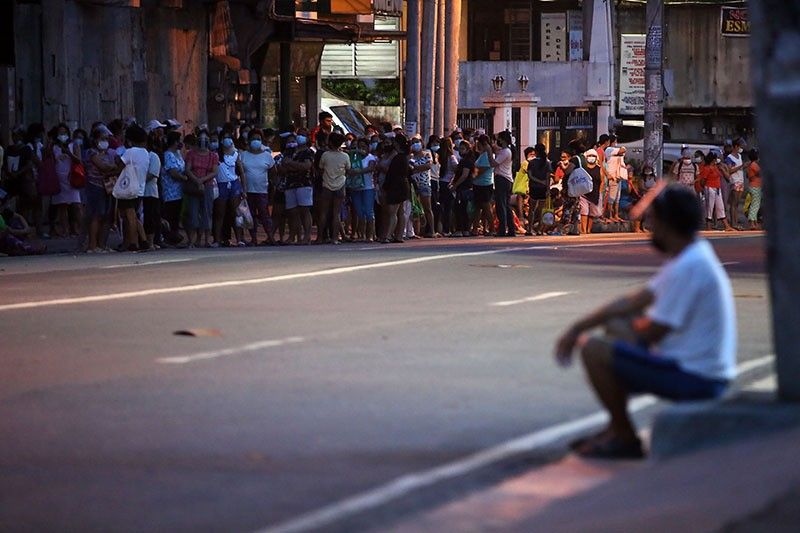Pandemic throws more Filipinos into poverty in first half — PSA

MANILA, Philippines — More Filipinos became poor in the first half of the year, as the pandemic wiped out gains of the Duterte administration in lifting people out of poverty.
A survey of 174,007 families nationwide showed there were 26.14 million Filipinos living below the poverty line in the first six months of the year, up from 22.26 million recorded in the comparable period in 2018, the Philippine Statistics Authority reported Friday.
This translated to a poverty rate among the country’s population of 23.7% during the January-June period, higher than 21.1% rate posted in the first two quarters of 2018.
At a press conference, National Statistician Claire Dennis Mapa said this was the first time since 2012 — the farthest that comparable data dates back — that first semester poverty incidence rose. State statisticians release the poverty data every three years.
Under the medium-term plan, the government targets to slash the poverty rate to 14% by 2022. Indeed, there were notable gains in 2018 when the proportion of poor Filipinos went down to 16.6% during that entire year from 22% in 2015.
In the same news briefing, Socioeconomic Planning Secretary Karl Kendrick Chua said the pandemic “temporarily halted our progress” in reducing poverty. While it is unknown how much of last year’s pandemic damage spilled over to this year, Chua explained that the latest poverty data was pretty much consistent with 2020 findings of the PSA’s labor force survey.
“In 2020, people’s income and jobs were significantly affected by stringent quarantines,” Chua said.
Broken down, a family of five steeped in poverty would spend P8,393 on average for food in a month in the first six months of 2021. This was higher by 13.8% compared to the same period in 2018.
By region, Metro Manila had the lowest poverty incidence in the country at 7.8% in the first two quarters of 2021, albeit worse than 6.6% recorded in the first half of 2018. The Bangsamoro Autonomous Region in Muslim Mindanao eked out the worst at 45.8% rate, bit this was lower than 63.2% registered in the same period in 2018.
Chua said the government is nevertheless retaining its target to bring down the poverty incidence between 15.5-17.5% this year, since data typically improves in the second half of the year.
“There’s a big difference typically in the first half and the second half, we will have to wait for full year to determine. We’re sticking to target, might be slightly better if we improve in recovery,” said Chua.
For Sonny Africa, executive director of nonprofit IBON Foundation, hitting this year’s target is possible if it would sustain financial report to poor Filipinos.
“The big poverty reduction in 2018 was mostly because of larger cash transfers to the poorest and not because new decent jobs were aplenty,” Africa said in a text message.
“If the government increases cash transfers again then officially reported poverty incidence could be nudged down. But if not, then it will stay as the number of Filipinos who are structurally stuck in extreme poverty,” he added.
Separately, Jun Neri, lead economist of the Bank of the Philippine Islands, agreed with Africa, but pointed out that progress in poverty reduction would depend on the next administration.
“We think the business community learned enough from the pandemic to compel them to permanently pivot towards more investments in agriculture, manufacturing and the digital space as their eyes have been opened by the risks of our heavy dependence on congested cities and high-contact services, should another pandemic hit us,” Neri said in a Viber message.
“The big risk is politics though. If we choose the wrong leaders decades of hard work could very quickly all go down the drain,” he added.
- Latest
- Trending























